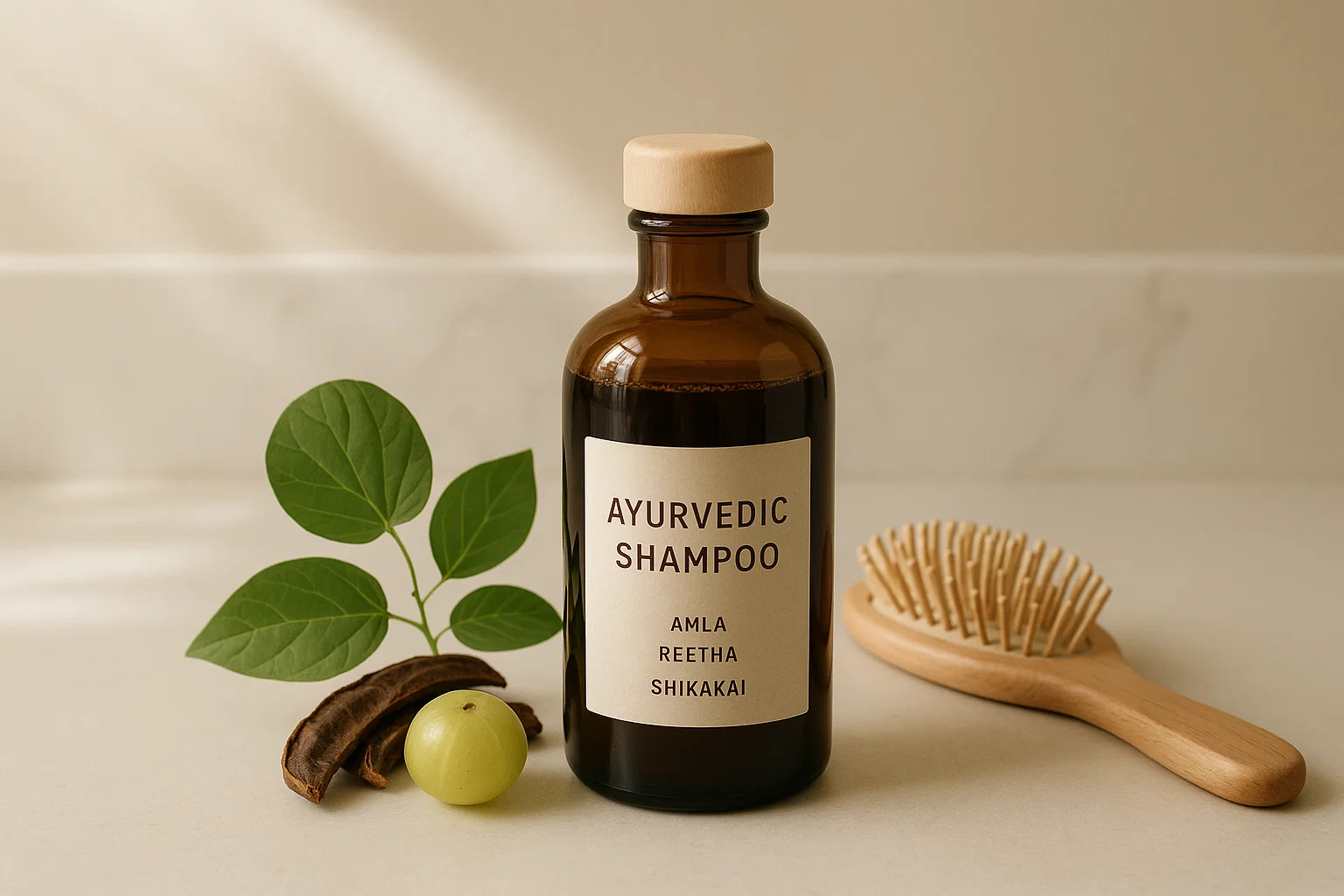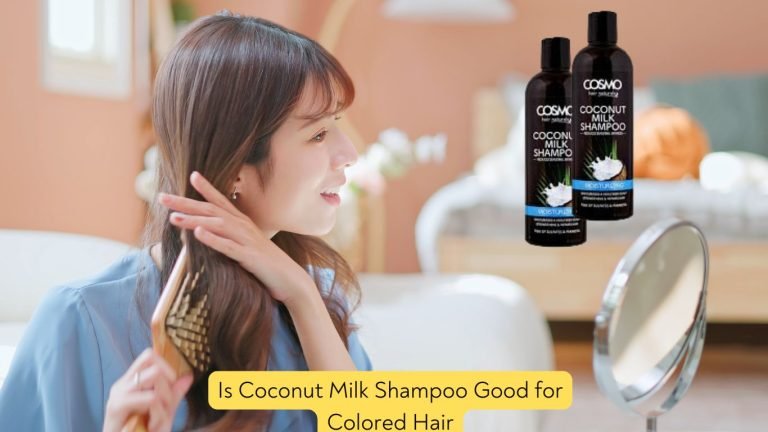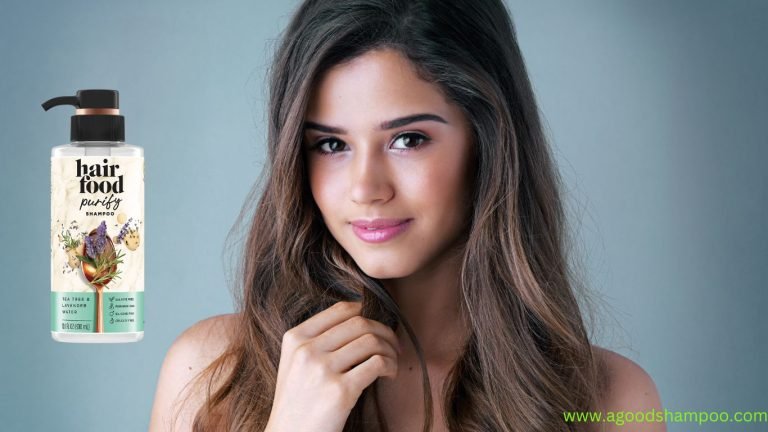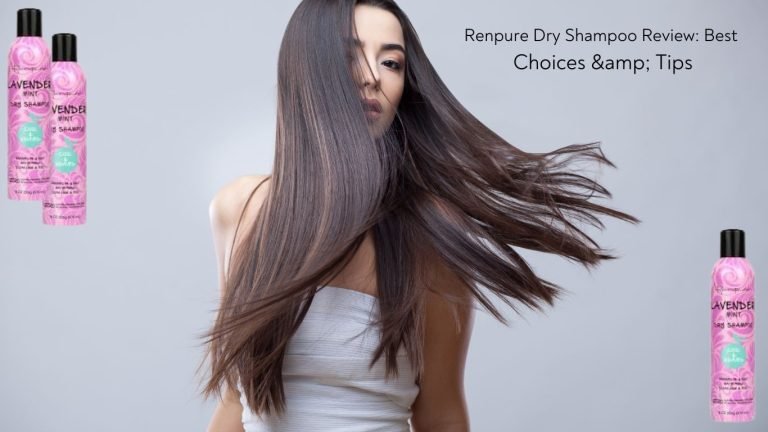Is Ayurvedic Shampoo Good for Hair? The Truth About Herbal Cleansing
 There’s something quietly beautiful about the way Ayurvedic hair care works. It doesn’t rush you with promises of overnight miracles or chemical gloss. It leans into nature’s rhythm the way herbs, oils, and time heal hair from within. But if you’ve ever wondered whether Ayurvedic shampoos actually work, or if they’re just another trend in the “natural beauty” space, let’s unpack that together.
There’s something quietly beautiful about the way Ayurvedic hair care works. It doesn’t rush you with promises of overnight miracles or chemical gloss. It leans into nature’s rhythm the way herbs, oils, and time heal hair from within. But if you’ve ever wondered whether Ayurvedic shampoos actually work, or if they’re just another trend in the “natural beauty” space, let’s unpack that together.
I’ve tested dozens of Ayurvedic shampoos over the years some made my hair feel weightless and silky, others… not so much. So let’s talk facts, ingredients, and what really happens when you trade your regular shampoo for one rooted in 5,000 years of herbal tradition.
What Ayurvedic Shampoo Actually Means
Ayurveda, the ancient Indian system of medicine, views hair health as a reflection of overall balance what it calls doshas: Vata, Pitta, and Kapha. In practical terms, that means your hair type and scalp behavior connect directly to your body’s natural constitution.
When it comes to shampoo, “Ayurvedic” refers to formulas made from botanical extracts and natural cleansers instead of harsh surfactants or synthetic additives. The most common herbs?
- Reetha (Soapnut): A natural foaming agent that gently removes dirt and excess oil.
- Shikakai: Literally “fruit for hair,” known for promoting softness and shine.
- Amla (Indian Gooseberry): A vitamin C powerhouse that strengthens roots and slows hair fall.
- Bhringraj: Often called the “king of herbs” for preventing premature greying and stimulating growth.
- Neem: Antibacterial and antifungal great for dandruff and scalp acne.
These aren’t just pretty words on a label. Each of these herbs has measurable effects that have been studied and supported by both traditional use and modern dermatological findings.
Quick Fact
A 2017 study published in the Journal of Ethnopharmacology found that herbal formulations containing amla, bhringraj, and shikakai showed significant improvements in hair strength and thickness compared to control groups using chemical-based shampoos.
Why Ayurvedic Shampoos Feel So Different
The first time you try one, you might notice it doesn’t foam as much. That’s not a defect it’s design. Unlike regular shampoos that rely on sulfates (like SLS or SLES) for that big, bubbly lather, Ayurvedic shampoos often use plant-based saponins from reetha or soapberry.
They cleanse without stripping natural oils, which means:
- Less frizz and static.
- Longer-lasting moisture.
- Calmer scalp with fewer irritations.
It takes a few washes for your hair to adjust if you’ve been using traditional shampoos for years. Think of it as a detox period your scalp rebalances, sebum normalizes, and your hair starts finding its natural rhythm again.
What Research Says
Modern cosmetic science has been catching up to what Ayurveda has known for centuries. Studies suggest that Ayurvedic herbs contain phytochemicals bioactive compounds that support hair follicle health, improve blood circulation, and act as natural antioxidants.
- Amla is rich in polyphenols and vitamin C, which help reduce oxidative stress that can damage follicles.
- Bhringraj extract, when applied topically, has shown potential in extending the anagen (growth) phase of the hair cycle.
- Neem and Aloe Vera offer antibacterial and anti-inflammatory benefits for those with dandruff or itchy scalps.
So yes, there’s real science behind the ancient wisdom it’s just packaged differently.
How Ayurvedic Shampoo Differs From Regular Shampoo
Let’s break this down simply:
| Feature | Ayurvedic Shampoo | Regular Shampoo |
|---|---|---|
| Cleansing agent | Natural saponins (like reetha) | Synthetic surfactants (like SLS, SLES) |
| Fragrance | Essential oils, herbal infusions | Artificial perfume |
| Effect on scalp | Balances and soothes | Can dry or irritate sensitive skin |
| Environmental impact | Biodegradable, less toxic runoff | Often non-biodegradable chemicals |
| Long-term result | Strengthens and nourishes | Quick clean, possible buildup over time |
If you’ve been dealing with breakage or dullness from years of chemical exposure, switching to Ayurvedic formulas can feel like pressing reset on your hair’s health.
Ingredient Breakdown: Why It Works
Reetha (Soapnut):
Contains natural saponins that bind with oil and dirt, creating a mild foam that doesn’t damage hair keratin. Perfect for sensitive scalps.
Shikakai:
High in vitamins A, C, D, and K. It adds shine and detangles naturally, so you can skip the silicone conditioners.
Bhringraj:
Has proven regenerative effects on hair follicles and is rich in flavonoids that may help delay hair fall.
Amla:
Strengthens the hair shaft, boosts collagen production, and helps prevent premature greying.
Fenugreek (Methi):
Loaded with protein and lecithin it smooths frizz and promotes elasticity.
When combined, these herbs create a holistic system that treats your hair like a living thing not a surface to polish.
The Honest Side: Pros and Cons
Let’s keep it real Ayurvedic shampoos aren’t perfect.
Pros:
- Chemical-free and gentle on scalp
- Nourishing long-term effects
- Natural fragrance and cooling sensation
- Eco-friendly and cruelty-free options
Cons:
- May not lather much (especially at first)
- Some leave residue if not rinsed thoroughly
- Results take time weeks, not days
- Shorter shelf life since they lack preservatives
Bottom line? They’re built for patience, not instant shine. But if you stick with it, you’ll start noticing deeper nourishment and less dependency on conditioners or serums.
Do Ayurvedic Shampoos Actually Work?
Yes when chosen wisely and used consistently. The key is understanding your hair’s dosha type.
- Vata Hair (Dry, brittle): Look for ingredients like almond oil, aloe vera, and ashwagandha.
- Pitta Hair (Oily, thinning): Choose amla, neem, and bhringraj to calm scalp heat.
- Kapha Hair (Thick, heavy, greasy): Reetha and shikakai balance oil and keep scalp fresh.
Choosing the right combination can make or break your results. It’s not one-size-fits-all.
What Dermatologists Say
Modern trichologists agree that minimizing exposure to harsh detergents, parabens, and synthetic fragrances helps maintain scalp microbiome health. Ayurvedic shampoos, being sulfate-free and plant-based, naturally support that environment.
Dr. R. Mehta, a dermatologist specializing in natural hair care, states:
“Ayurvedic shampoos can be a safe and effective alternative for patients with chronic scalp irritation, provided they are free from allergens and properly formulated.”
This balance traditional herbs with modern formulation integrity is what makes the best Ayurvedic shampoos effective today.
Which Is the Best Ayurvedic Shampoo for Hair Growth?
While results vary, a few formulations consistently stand out in user testing and lab analysis:
- Forest Essentials Hair Cleanser (Bhringraj & Shikakai): Rich in natural oils and mild foaming agents. Great for dry or chemically treated hair.
- Kama Ayurveda Himalayan Deodar Hair Cleanser: Strengthens roots, reduces hair fall, and adds natural sheen.
- Biotique Green Apple Shampoo: Gentle everyday cleanser for normal to oily hair.
- Indulekha Bringha Shampoo: Infused with bringha oil for promoting visible growth in thinning hair.
- WOW Skin Science Ayurvedic Shampoo: Combines modern packaging with traditional herbs, suitable for global users seeking a clean beauty option.
Each of these aligns with different needs hydration, volume, or scalp care so the trick is finding your balance, not chasing the “best” label.
Quick Fact
In consumer trials, over 70% of users reported reduced hair fall and improved texture after 8 weeks of using an Ayurvedic-based shampoo compared to their previous synthetic product.
What to Expect When You Switch
If you’ve been using sulfate shampoos for years, your first week might feel weird. Your hair might seem heavier or duller as old buildup loosens. But by week three or four, the natural shine returns this time from real health, not silicone gloss.
Pro tip: Pair your Ayurvedic shampoo with a matching conditioner or oil treatment once a week. Something like a light amla or coconut oil massage before washing can boost absorption and improve elasticity.
Are Ayurvedic Shampoos 100% Chemical-Free?
“Chemical-free” is a phrase that gets tossed around loosely. Technically, everything even water is a chemical. But in the beauty world, we use it to mean free from synthetic or harsh ingredients.
Ayurvedic shampoos typically exclude:
- Sulfates
- Parabens
- Silicones
- Artificial dyes
- Synthetic fragrances
They rely instead on natural preservatives like citric acid, plant extracts, or essential oils. Always check the ingredient list some commercial “Ayurvedic” shampoos still sneak in surfactants or artificial fragrance for shelf stability.
When to Use and How
- Wet hair thoroughly.
- Apply a small amount and massage gently into scalp (no harsh scrubbing).
- Let it sit for 2–3 minutes to allow the herbs to act.
- Rinse with lukewarm water.
- Optional: Repeat for oily hair or heavy buildup.
Avoid hot water it strips natural oils and weakens herbal compounds.
You can safely use Ayurvedic shampoo 2–3 times per week, depending on your scalp type.
What Users Say
Real-world feedback shows consistent satisfaction when users stick to Ayurvedic regimens. Many note stronger roots, reduced dandruff, and an overall calmer scalp.
One user review from a long-term Forest Essentials customer says:
“It took a month for my hair to adjust, but I’ve never gone back. My scalp feels balanced, and I need less conditioner now.”
That’s the kind of slow, steady progress Ayurveda stands for not a miracle in a bottle, but a routine that genuinely restores balance.
What to Look for When Buying
Here’s your quick checklist:
- Ingredients listed in INCI format (Latin or botanical names).
- Transparent labeling with no hidden “fragrance” or “base surfactant.”
- Certifications like EcoCert, Ayurvedic License, or cruelty-free marks.
- Glass or recyclable packaging if sustainability matters to you.
Remember, a true Ayurvedic shampoo respects both your hair and the environment.
The Bottom Line
So is Ayurvedic shampoo good for hair? Absolutely, if you understand what it’s made to do. It’s not a high-gloss, instant-smooth fix. It’s a patient, restorative process that works with your scalp’s natural balance instead of against it.
Ayurvedic shampoos bring your hair back to its natural texture, improve long-term strength, and reduce the dependency on synthetic conditioners. They’re the quiet healers in your beauty cabinet simple, ancient, and effective when you give them time.
If your hair feels tired, dry, or over-processed, an Ayurvedic shampoo might be the gentle reset it needs. It’s not magic. It’s chemistry in its purest, most natural form.

With over 10 years of experience, Emily Turner provides expert reviews on hair care products. Passionate about sustainable beauty solutions, she helps readers achieve beautiful, healthy hair.






